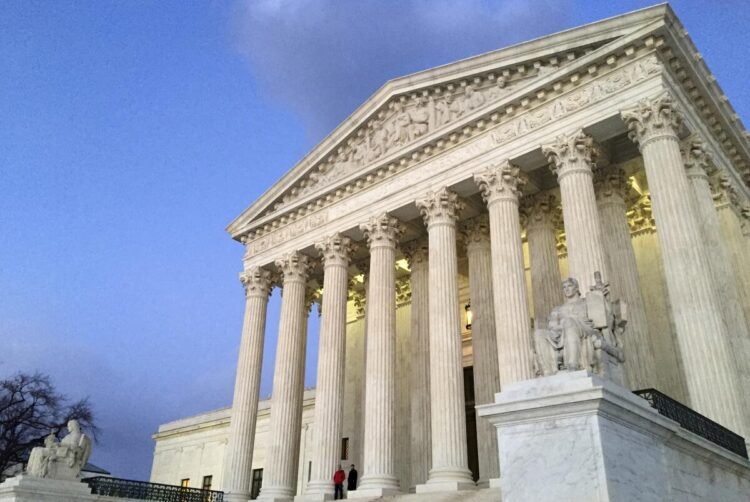A group of Holocaust victims seeking to recover property stolen during World War II cannot pursue their case in American courts because their stolen funds were commingled with other assets, the U.S. Supreme Court ruled on Friday. The unanimous decision, delivered by Justice Sonia Sotomayor, marks a significant moment in the long-standing debate over the jurisdiction of U.S. courts in international disputes.
Sotomayor, referencing a brief from the U.S. government, acknowledged the moral obligation to provide justice to Holocaust survivors within their lifetimes. However, she emphasized that respecting the legal boundaries for suing foreign governments in U.S. courts helps the United States advocate for appropriate redress mechanisms abroad.
The ruling leaves open the possibility that the victims may pursue their claims through other legal channels, though not under the specific legal theory they presented in this case.
The case involves more than a dozen Holocaust survivors and their families who have been fighting the Republic of Hungary and its national railway for nearly 15 years. Under U.S. law, lawsuits against foreign governments are generally prohibited, but the plaintiffs sought to invoke an exception that applies when expropriated property is present in the United States. They argued that Hungary sold the stolen artwork, jewelry, and other possessions of Hungarian Jews, and that the proceeds from those sales eventually entered the United States through trade with Hungary.
Sotomayor noted the inherent challenge in tracing cash once it has been mixed with other funds. “When a foreign sovereign is responsible for the expropriation, a suit may proceed only if the property is ‘present in the United States,’” she explained, emphasizing the law’s requirement to trace specific property rather than general proceeds.
During oral arguments in December, several justices expressed concern about the potential diplomatic consequences of allowing the case to proceed. They feared that foreign nationals might file similar lawsuits against the United States in foreign courts—a concern echoed by the Biden administration, which sided with Hungary. The Justice Department warned that a ruling in favor of the survivors could invite reciprocal actions against the U.S. abroad.
The 1939 Society, an organization representing Holocaust survivors, criticized the administration’s position, calling it a “surprising abdication of America’s historic leadership role in obtaining redress for Holocaust victims.” The group argued that American courts are the only realistic venue for survivors to pursue their claims.
Justice Samuel Alito appeared somewhat receptive to that argument during oral arguments, suggesting that reciprocal lawsuits against the United States would likely be limited. However, other justices worried that allowing the lawsuit to proceed would create a loophole for foreign governments to evade U.S. court jurisdiction by quickly selling stolen property and mixing the proceeds with other funds.
The victims originally filed their lawsuit in 2010. The case has moved through various levels of the U.S. court system for over a decade, including a previous appearance before the Supreme Court four years ago. At that time, the justices sent the case back to lower courts for further review. Last year, a federal appeals court in Washington, D.C., ruled in favor of the victims, prompting Hungary to appeal to the Supreme Court, resulting in Friday’s ruling.

 English
English



























































